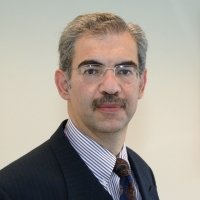WEBCAST | Covid-19 in Latin America: The Role of Social Policy
In Latin America and the Caribbean, the economic effects of the coronavirus pandemic have been devastating. With quarantines in place across most of the region and economic activity grinding to a halt, already-struggling economies face deep and possibly historic levels of recession. The rise in unemployment is dramatic; but particularly hard hit are those in the informal sector—over half of the labor force in the LAC region. Even before the harsh impacts of Covid-19, most informal workers lacked access to health insurance, pensions, and other forms of social protection.
What are governments in region doing to soften the economic blow for their most vulnerable citizens? Do existing high debt-to-GDP ratios make it too risky for governments to adopt expansionary social policies? If not, where will the funding for social programs come from and how can the greatest number be reached? What are the political costs of doing too little to address the rise in poverty during and after the pandemic, especially in light of last year’s protest movements?
Please join us on Wednesday, April 15th, 11:00 a.m. to 12:00 p.m. EST, for a videoconference on the role of social policy in responding to the economic dislocations caused by the coronavirus.
Speakers




Moderator

Hosted By

Latin America Program
The Wilson Center’s prestigious Latin America Program provides non-partisan expertise to a broad community of decision makers in the United States and Latin America on critical policy issues facing the Hemisphere. The Program provides insightful and actionable research for policymakers, private sector leaders, journalists, and public intellectuals in the United States and Latin America. To bridge the gap between scholarship and policy action, it fosters new inquiry, sponsors high-level public and private meetings among multiple stakeholders, and explores policy options to improve outcomes for citizens throughout the Americas. Drawing on the Wilson Center’s strength as the nation’s key non-partisan policy forum, the Program serves as a trusted source of analysis and a vital point of contact between the worlds of scholarship and action. Read more
